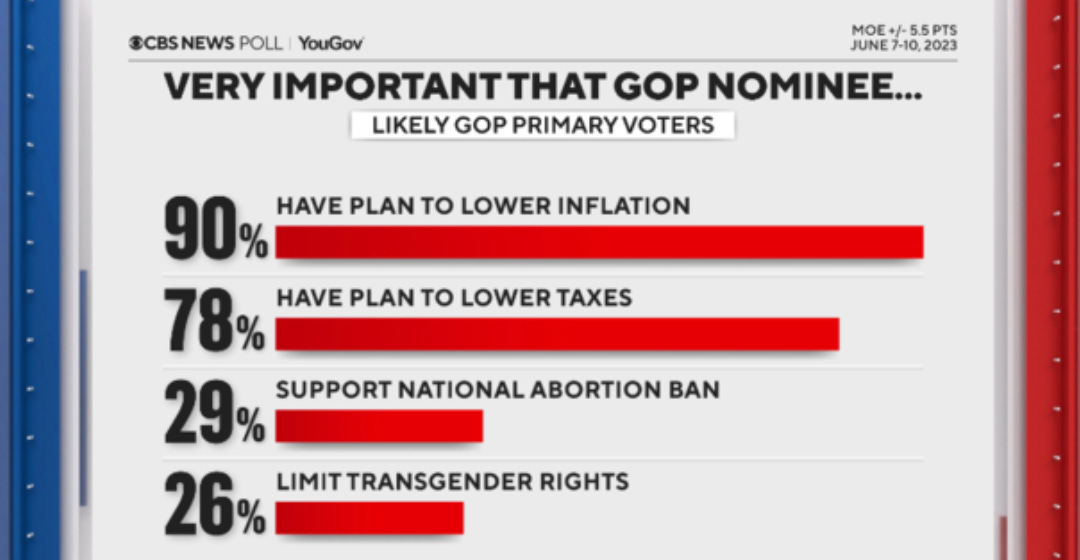TL(PM) DIGEST: Patriots defending Ukraine
Plus GOP primary voters want a focus on economic issues, the not-so-silent scourge of noise pollution, and Italy's "bunga bunga" strongman dies

1. Patriot missiles prove their value in Ukraine
What happened? U.S.-built Patriot anti-aircraft missiles have proven their value defending Ukrainian airspace over the past six months, regularly shooting down Russia’s most advanced ballistic missiles. Raytheon, the Patriot’s manufacturer, plans to deliver five more Patriot systems to Ukraine by the end of next year—Kyiv currently has two donated by the United States and Germany in service—and increase production to twelve a year, according to the Wall Street Journal.
Why does it matter? Patriot missile batteries have been in high demand in recent years, as the U.S. military and its Middle East security partners look to defend themselves against Iranian-supplied ballistic missiles. The war in Ukraine and the need for air defenses in the Pacific have only increased demand over the past year and a half, and increased production should help alleviate some of the strains on U.S. and allied militaries.
TLP’s take: Production of more Patriot batteries can’t come fast enough for Ukraine or the United States and its allies. While there have been questions about just how effective the system has been since the First Gulf War in 1991, it’s clear that the most modern version of the missile has saved civilian lives in Ukraine since it became operational a couple months ago.
2. GOP primary voters want the party to focus on economic issues over culture wars
What happened? New polling from CBS News/YouGov finds that likely GOP primary voters place a much higher priority on economic issues like inflation and taxes than they do culture war clashes.
Why does it matter? Contrary to popular belief—and the rhetoric of most current Republican presidential contenders—GOP primary voters themselves express a desire for the party to put forth a credible economic plan first and foremost. Nine in 10 primary voters say it is very important for the eventual nominee to have a plan to fight inflation and nearly eight in 10 want a candidate with a plan to lower taxes—but less than three in 10 Republican primary voters think it’s very important for their candidate to either support a national abortion ban or seek to limit transgender rights.
TLP’s take: Political elites in both parties mistakenly believe that culture wars are good politics and strongly mobilize voters. These results show the opposite: even ideologically conservative voters want a greater economic focus from their presidential nominee and fewer cultural sideshows.
3. Noise pollution is harming Americans’ health
What happened? The New York Times offers a comprehensive look at the evidence showing that excessive noise adversely affects human physical and mental health.
Why does it matter? As modern life gets noisier and more chaotic, many Americans are probably unaware at how these aural disruptions are impacting them on a daily basis:
Mounting research suggests that the relationship between noise levels and disease is eerily consistent: A study following for more than a decade, for example, found that, starting at just 35 dB, the risk of dying from cardiovascular disease increased by 2.9 percent for every 10 dB increase in exposure to road traffic noise.
The increase in risk of dying from a heart attack was even more pronounced: Also starting at just 35 dB, it increased by 4.3 percent for every 10 dB increase in road traffic noise…
Scientists believe that pronounced fluctuations in noise levels like this might compound the effects on the body. They suspect jarring sounds that break through the ambience—recurring jet engines, a pulsating leaf blower, or the brassy whistle of trains—are more detrimental to health than the continuous whirring of a busy roadway, even if the average decibel levels are comparable.
TLP’s take: As the Times notes, health-related problems from noise are not something an individual and their doctor can fix—it takes coordinated public policy to do this. Municipal, state, and federal governments should take a serious look at some of the steps being taken around the world to reduce noise pollution through “noise brake” requirements on loud machines, “quiet hour” regulations, various workplace noise protections, and reductions on motor vehicles in dense urban areas.
4. Silvio Berlusconi, Italian prophet of right-wing populism, dead at 86
What happened? Former Italian prime minister and media mogul Silvio Berlusconi died in Milan at age 86. Berlusconi served as a prime minister three times in the 1990s and 2000s, and his two-plus decades in politics was plagued by multiple sex and corruption scandals—including his notorious “bunga bunga” sex parties that were first revealed in 2010.
Why does it matter? Berlusconi’s political success as a media figure turned right-wing populist paved the way not just for the current right-wing Italian government but right-wing populist figures around the world, including Donald Trump in the United States and Boris Johnson in Great Britain. Though he never attained Italy’s highest office after leaving it for the last time in 2011, Berlusconi’s wider political legacy will remain with us for the foreseeable future.
TLP’s take: As comical as Berlusconi could seem, he represented the leading edge of right-wing populism as it would emerge and evolve in the 2010s. He created a model for politicians like Trump, and the world would probably have been better off if he’d never entered politics.
Just one more thing…
The quarantine Apollo 11 astronauts Neil Armstrong, Buzz Aldrin, and Michael Collins were subjected to after returning from humanity’s first trip to the lunar surface wasn’t exactly airtight, with recent historical research revealing the equipment and hardware intended to protect native Earthlings from potential lunar microbes had a number of cracks and leaks that rendered full isolation impossible.







